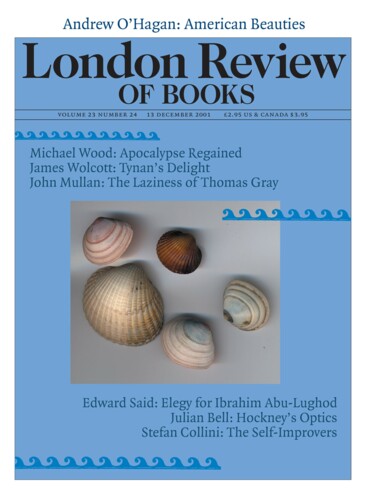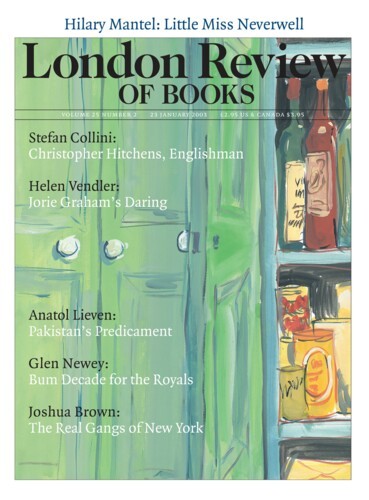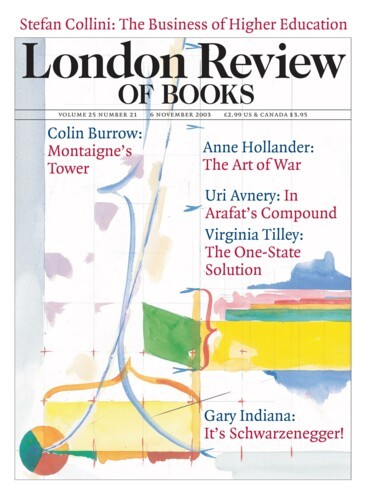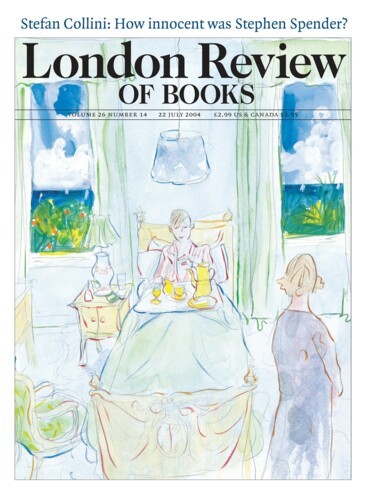“We have now entered the world of hotel and restaurant guides: some departments will have signs next to the entrance saying ‘HEFCE-commended’, while prospective students will decide whether they will be content with ‘plain regional teaching’ (one mortarboard), or would prefer ‘high-quality teaching in its category’ (two mortarboards), or perhaps even stretch to ‘exceptional teaching of international quality’ (three mortarboards). Suicides among heads of department who are stripped of one of the coveted mortarboards cannot be ruled out.”
The Future of Higher Education
Stationery Office, 112 pp., £17.50, January 2003, 0 10 157352 9
“We have now entered the world of hotel and restaurant guides: some departments will have signs next to the entrance saying ‘HEFCE-commended’, while prospective students will decide whether they will be content with ‘plain regional teaching’ (one mortarboard), or would prefer ‘high-quality teaching in its category’ (two mortarboards), or perhaps even stretch to ‘exceptional teaching of international quality’ (three mortarboards). Suicides among heads of department who are stripped of one of the coveted mortarboards cannot be ruled out.”




